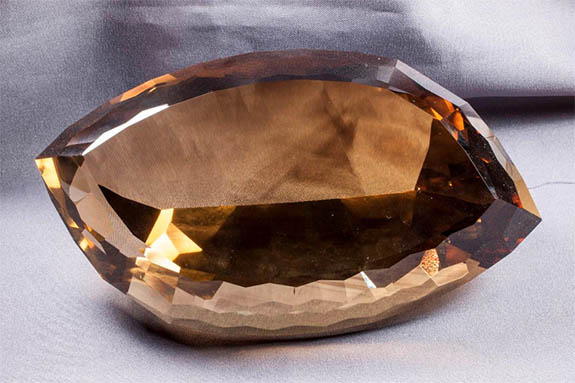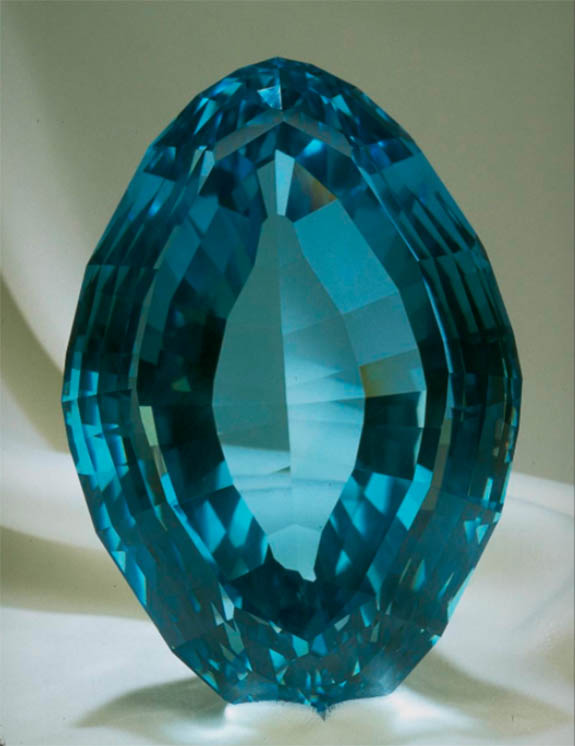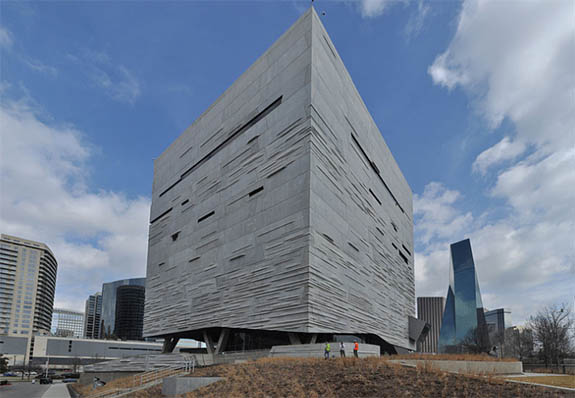Topaz and citrine share the spotlight as the official birthstones for the month of November. And perhaps nowhere in the world can you see bigger and more magnificent examples of these gem varieties than at the Perot Museum of Nature and Science in Dallas.

You thought we were going to say "the Smithsonian in Washington, D.C.," but here's the catch.
The Smithsonian has loaned 29 of its biggest faceted gems to the Perot Museum for a limited showing that runs through January 17, 2017. Among the specimens headlining the “Giant Gems of the Smithsonian” exhibition is the famous 22,892-carat American Golden topaz, a 19,747-carat smoky citrine and a football-shaped 7,033-carat irradiated blue topaz.

The American Golden Topaz is the third-largest faceted gemstone in the world. Sourced in Minas Gerais, Brazil, and tipping the scales at a whopping 10.1 pounds, the American Golden Topaz was cut by Leon Agee over a period of two years in the late 1980s from a 26-pound stream-rounded cobble owned by Drs. Marie L. and Edgar F. Borgatta.
In the top photo, the faceted gem sits in the foreground while two other natural topaz crystals are nearly the size of the seated young girl. They weigh 70 pounds and 111 pounds, respectively, but are not part of the Perot exhibit.

Sourced in Bahia, Brazil, the modified marquise-shaped smoky citrine was faceted in 1987 by Michael Gray and acquired by the Smithsonian in 2013. At 8.7 pounds, it's the largest smoky citrine in the National Gem Collection.

It's a common jewelry industry practice to irradiate pale-colored topaz, which becomes a brilliant blue after the process. The football-shaped gem you see here likely started out as colorless or pale yellow-brown, according to the Smithsonian. Discovered in Ouro Preto, Brazil, the 3.1-pound gem was gifted to the Smithsonian in 1981.

“Giant Gems of the Smithsonian” is making its temporary residence at the Lyda Hill Gems and Minerals Hall, which is one of the Perot Museum's most popular exhibits.
Credit: Photos of American Golden Topaz with child, smoky citrine and blue topaz courtesy of Smithsonian. Display photo of American Golden Topaz by Observer31 at English Wikipedia [CC BY 3.0], via Wikimedia Commons. Perot Museum by Joe Mabel [CC BY-SA 3.0], via Wikimedia Commons
No comments:
Post a Comment